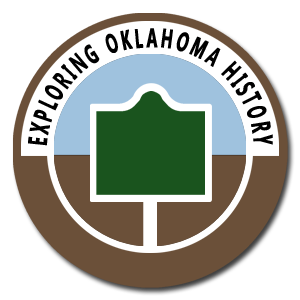Henry "Heck" Thomas
Legendary Indian Territory lawman Henry "Heck" Thomas burial site received a new headstone on May 1. The headstone was unveiled in a ceremony befitting a legend. A bugler played "Taps," period-dressed actors gave speeches, and the Lawton Police Honor Guard gave a 21-gun salute. More at NewsOK.com.
Who's Heck Thomas?
From Wikipedia:
Who's Heck Thomas?
From Wikipedia:
Related:Henry A. Thomas (January 3, 1850 - August 15, 1912) was a lawman on the American frontier, most notably in Oklahoma.
Thomas served as a Confederate cavalryman during the Civil War, and he became a peace officer in Fort Worth, Texas following the war. He was generally known as "Heck" in preference to Henry. By the late 1870s he had moved on to the U.S. Marshals Office in Fort Smith, Arkansas, responsible for helping police the then very wild Oklahoma Territory. He worked under the direction of Judge Isaac Parker, the famous "hanging judge", and by the late 1880s had joined with Bill Tilghman and Chris Madsen to form "The Three Guardsmen" as Deputy U.S. Marshals.
The three were credited with the apprehension of in excess of some 300 outlaws over the next decade, killing several others, and they are credited with the ultimate demise of the Doolin Gang. Thomas was specifically mentioned by Emmett Dalton, years after his release from prison, as one of the main reasons the Dalton Gang chose to commit two simultanious bank robberies in Coffeyville, Kansas, stating that Thomas was relentless in his pursuit, and the gang decided to make one big score, and leave the territory for a time. Instead, the gang was wiped out in the Coffeyville robberies, with Emmett being the only survivor.
In August, 1896, Thomas tracked down and killed outlaw Bill Doolin, who had previously been captured by Tilghman, only to escape from prison later on July 5th, 1896. [1] It was that killing for which Thomas became best known. He retired by 1905, but returned to his final law enforcement position as police chief of Lawton, Oklahoma around 1906, but declining health forced his retirement in 1909. He died three years later, reportedly of Bright's disease, which also claimed his old employer, Judge Parker.
